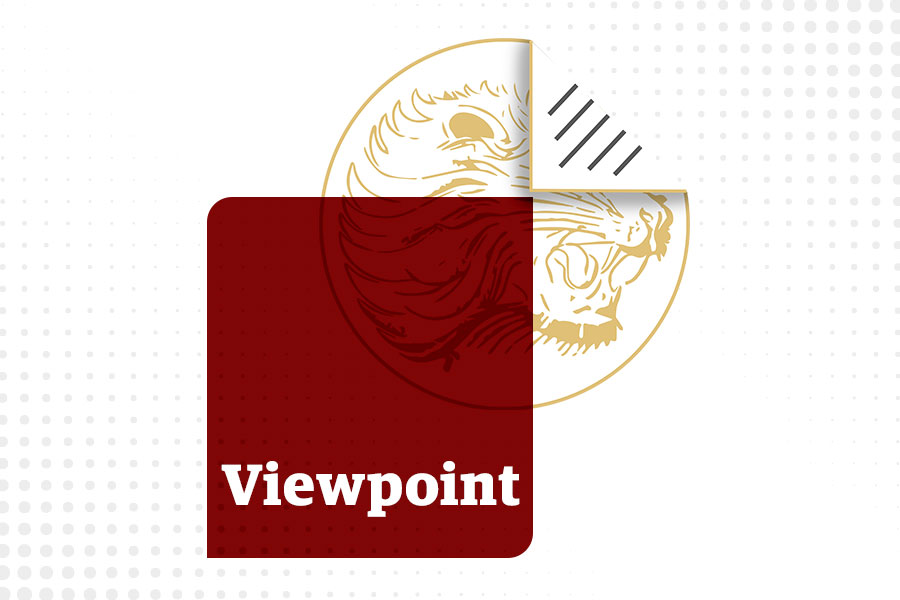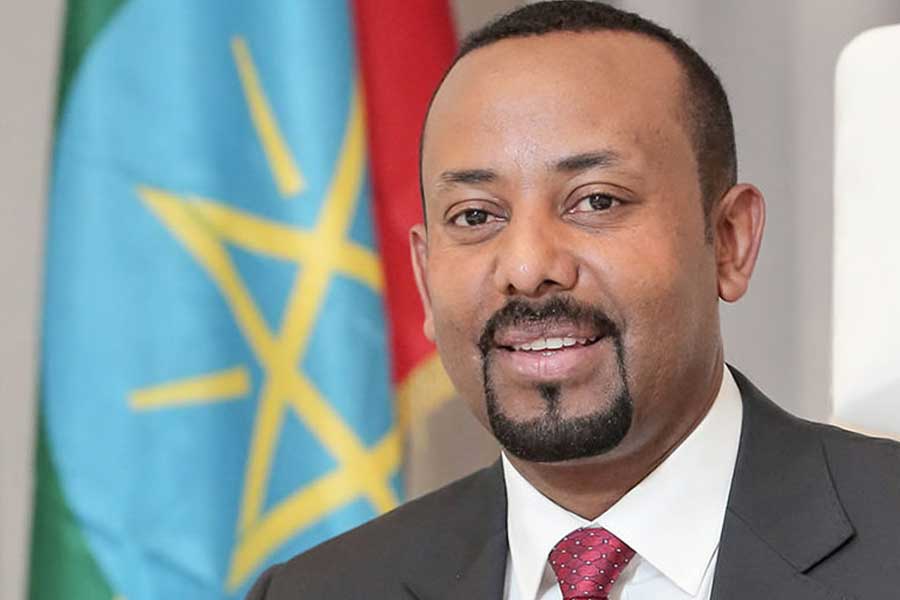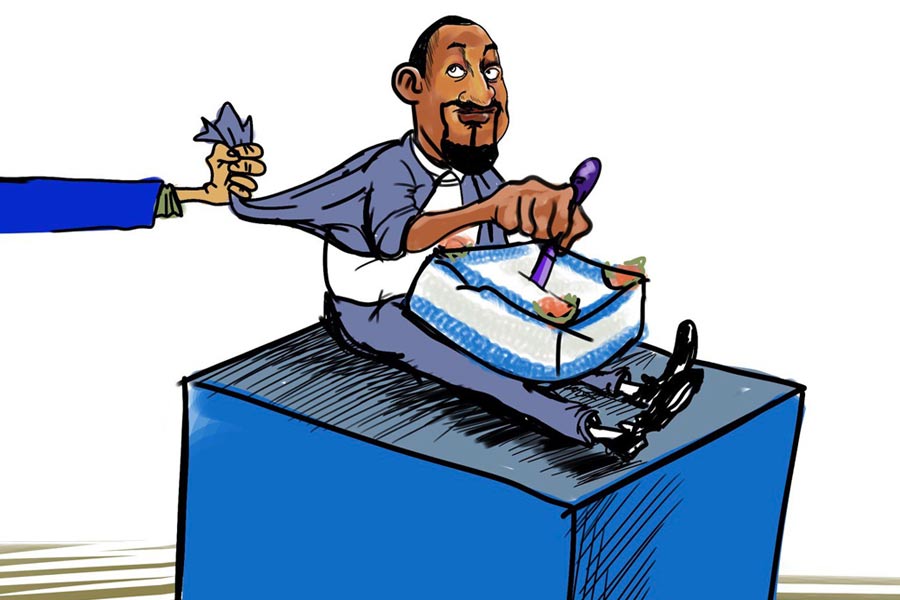
My Opinion | Aug 26,2023
Oct 10 , 2020
By Eden Sahle
Men and women in their sixties who have been close friends for decades started discussing politics during a small social get-together not long ago.
Soon, their heated debate started attracting everyone's attention in their vicinity. Although we did not find any substance in what any of them were saying, we kept on listening. Each side had an individual in politics that they supported unequivocally and argued in favour of. It was also the case that many of them came from ethnic backgrounds.
Their discourteous chatter continued as everyone else was too intimidated by how aggressive they were becoming to mediate. As we were contemplating how to bring to an end what was occurring, a couple of them got off their seats and began throwing fists at each other.
Fortunately, other senior men at the gathering became involved and managed to stop the brawl. By the time I had gotten out of there, the heavy rain that was pouring had stopped, and the sun had come out. I had so much detoxifying to do after what had just expired, I bathed in the sunlight for as long as I could.
Ethiopia’s manner of engaging in politics has never been mature or predictable. The boundaries are unknown, and there are few, if any, agreed-upon rules of engagement. The mudslinging that happens on the surface often leaves most of us in the dark, and we often struggle to even comprehend our politics in its entirety.
Our faulty politics at the top is making itself felt in our day to day lives, in how individuals have come to engage with one another. The political friction is manifesting itself in social strife.
In an ideal world, the people and the government work hand in glove as part and parcel of the state. The latter, based on a social contract, caries out basic social and economic functions for the former.
In the real world, the government has too many grave failures that it often has a hard time gaining legitimacy from the people. Citizens are negatively affected by the actions of the government when there is a lack of checks and balances and efficient bureaucratic methods.
This is further complicated by the fact that each group of people, based on their geographic locations and socioeconomic circumstances, have differing needs and demands. The government’s task is thus not merely providing basic services but redistributing wealth and meeting the needs and demands of different groups with sensitivity. This is a job that is hard to do even under circumstances in which the government has enough resources, let alone when the officials and the bureaucrats running the government are inefficient and corrupt.
Our country’s politics is utterly unpleasant. In all my life, I have not met many people who are content about the country's leadership. The public has gotten used to it, and citizens are tired, weary and defeated. This is the sad reality. Making it all the more unfortunate is that the poverty we are subjected to is further compounded by collective hopelessness and trauma over political events.
The consequence of this is social disorder. Citizens are increasingly divided over national issues and are growing hostile to one another. Political ideologies have become essentialised into cultural and even religious backgrounds, and we have become incapable of engaging one another in good faith. Political opponents are enemies now.
Our lack of tolerance is narrowing our minds, values and outlook in life. In the midst of such politics, our diversity is in fact proving to be a disadvantage rather than a benefit.
The effects of this on our development are huge, compounding the low rate of economic competitiveness Ethiopia has and its failure to be self-reliant. Trust is a major requirement to do business, which becomes complicated when self-worth and value are measured based on personal backgrounds. Let alone doing business, people will be unable to sit for innocuous social get-togethers.
PUBLISHED ON
Oct 10,2020 [ VOL
21 , NO
1067]

My Opinion | Aug 26,2023

Editorial | Apr 22,2023

Viewpoints | Oct 20,2024

Editorial | Jul 01,2023

Viewpoints | Apr 22,2023

Editorial | Feb 25,2023

Fortune News | Oct 12,2019

Viewpoints | Dec 10,2018

Editorial | Dec 30,2023

Radar | Jun 29,2019

Photo Gallery | 175426 Views | May 06,2019

Photo Gallery | 165646 Views | Apr 26,2019

Photo Gallery | 155984 Views | Oct 06,2021

My Opinion | 136817 Views | Aug 14,2021

Dec 22 , 2024 . By TIZITA SHEWAFERAW
Charged with transforming colossal state-owned enterprises into modern and competitiv...

Aug 18 , 2024 . By AKSAH ITALO
Although predictable Yonas Zerihun's job in the ride-hailing service is not immune to...

Jul 28 , 2024 . By TIZITA SHEWAFERAW
Unhabitual, perhaps too many, Samuel Gebreyohannes, 38, used to occasionally enjoy a couple of beers at breakfast. However, he recently swit...

Jul 13 , 2024 . By AKSAH ITALO
Investors who rely on tractors, trucks, and field vehicles for commuting, transporting commodities, and f...

Oct 18 , 2025
The political establishment, notably the ruling party and its top brass, has become p...

Oct 11 , 2025
Ladislas Farago, a roving Associated Press (AP) correspondent, arrived in Ethiopia in...

Oct 4 , 2025
Eyob Tekalegn (PhD) had been in the Governor's chair for only weeks when, on Septembe...

Sep 27 , 2025
Four years into an experiment with “shock therapy” in education, the national moo...

Oct 18 , 2025 . By NAHOM AYELE
In a sweeping reform that upends nearly a decade of uniform health insurance contribu...

Oct 18 , 2025 . By BEZAWIT HULUAGER
A bill that could transform the nutritional state sits in a limbo, even as the countr...

Oct 18 , 2025 . By SURAFEL MULUGETA
A long-planned directive to curb carbon emissions from fossil-fuel-powered vehicles h...

Oct 18 , 2025 . By BEZAWIT HULUAGER
Transaction advisors working with companies that hold over a quarter of a billion Bir...